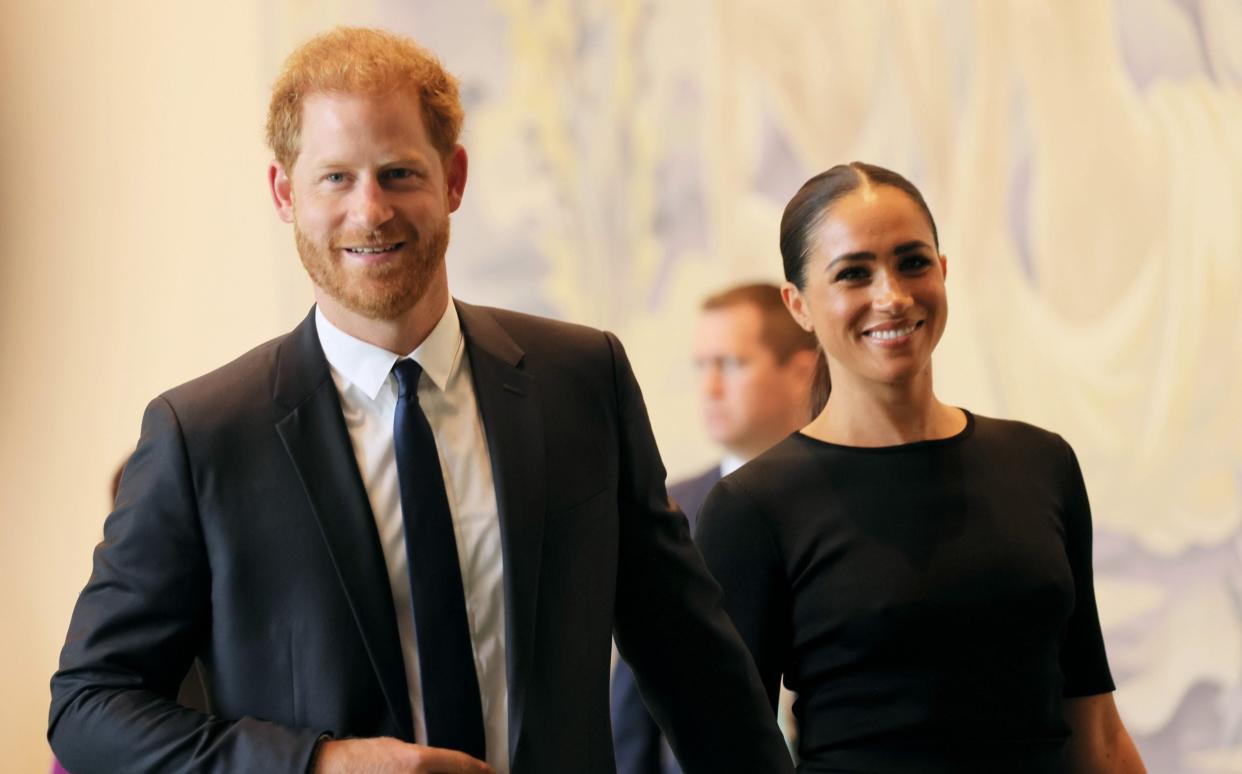Prince Harry wins bid for review of Home Office police protection ruling

The Duke of Sussex has won the right to challenge a Home Office decision not to grant him automatic police protection whenever he is in the UK.
Mr Justice Swift ruled on Friday that this case could proceed to a judicial review at the High Court.
The Duke brought the claim on five grounds, four of which the judge said were “arguable”, albeit with some parts removed.
The decision was made by the Executive Committee for the Protection of Royalty and Public Figures (known as Ravec) in February 2020, shortly after the Duke announced he was stepping back as a working member of the Royal Family and moving abroad.
'Particular and unusual position'
Ravec said the Sussexes’ plan to live abroad as private citizens did not “fit readily” into any category of its framework.
However, it recognised that the Duke occupied a “particular and unusual position” and that he may need protection in certain circumstances, to be considered on a case by case basis.
The Duke, 37, argued that he inherited a risk at birth and that as such, he, his wife Meghan and their children Archie, two, and Lilibet, one, should be afforded permanent protective security in the UK, regardless of their status as non-working royals.
In asking for a judicial review, he said he had been denied a “clear and full explanation” of the composition of Ravec and others involved in its decision making.
He said Sir Edward Young, the Queen’s private secretary, should not have been involved in the decision due to the “significant tensions” between them.
Shaheed Fatima QC, for the Duke, told the High Court he had not been told members of the Royal Household were involved in the decision, arguing that it was not “appropriate” and that the Duke had been told Ravec was “independent”.
The judge rejected the claim, stating that despite any alleged disagreements, there was "no evidence at all to support a claim that any committee member had approached decisions with a closed mind” or that they had been affected by bias.
However, the judge agreed that the Duke could argue he should have had the opportunity to make representations directly to Ravec.
'Overly rigid' manner
Ms Fatima previously told the court that Government policy allowed for state security to be provided to all within the “immediate line of succession”.
She said it had been applied in an “overly rigid” manner, suggesting it was unlawful to exclude the Duke, who is sixth in line to the throne, from that scope.
However, this ground was rejected by the judge, who said Ravec was “entitled to decide for itself” which individuals within the line of succession should be afforded automatic security.
The judge also said there was “no plausible basis” for contending that Ravec should have considered the hybrid role the Sussexes had proposed they play in public life and their discussions with the Royal household on the matter.
However, he agreed that the alleged lack of transparency over the committee's decision making was worthy of examination.
The judge added a note of caution, noting that his ruling at this stage did not mean the Duke would win at a final hearing.
Ravec's new approach to the Duke's security was first applied last June, when he returned to the UK from California to unveil a statue of his late mother, Diana, Princess of Wales, and was forced to bring his own private security detail from the US.
It was this experience that prompted him to apply for a judicial review last September. He is challenging both the original February 2020 decision and the way it was applied last June.
Meanwhile, the Duke has also lodged an application for a second judicial review concerning his offer to pay for protection, which he argues should have prompted the Home Office to "quash and retake" its decision.


